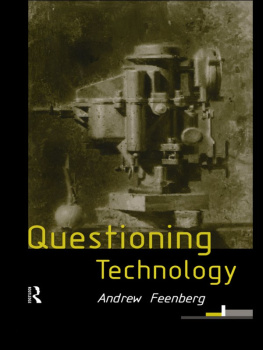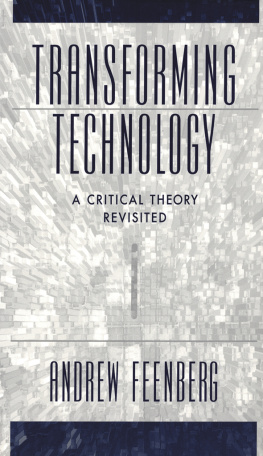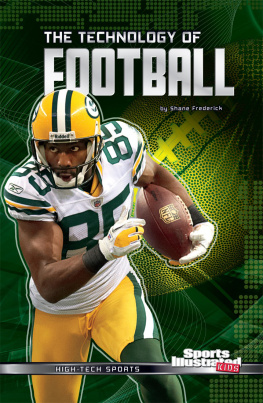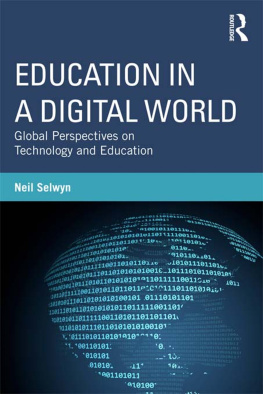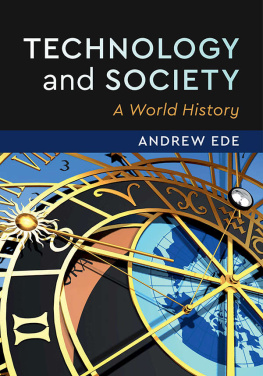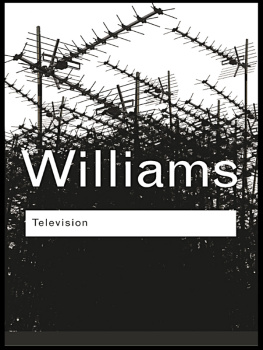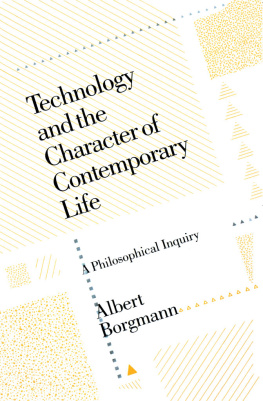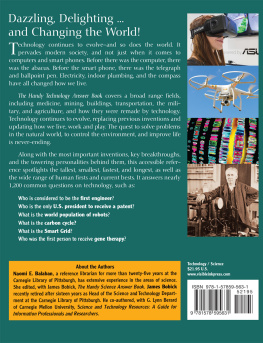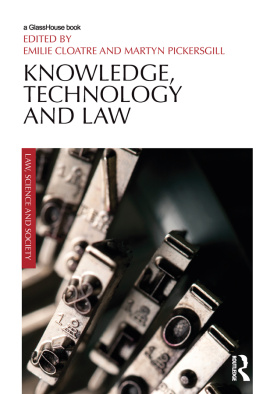Questioning
Technology
Questioning Technology is a superb piece of workI see it as quite simply one of the best books in the field of philosophy of technology, as well as one which I think will be of most interest to students. Andrew Light, SUNY Binghampton
Andrew Feenbergs Questioning Technology is a cutting edge book which provocatively argues for subjecting technology to democratic debate and reconstruction. One of the most important books on technology in the present era.
Douglas Kellner, UCLA
In this extraordinary introduction to the study of the philosophy of technology, Andrew Feenberg argues that technological design is central to the social and political structure of modern societies. Environmentalism, information technology, and medical advances testify to technologys crucial importance.
In his lucid and engaging style, Feenberg shows that technology is the medium of daily life. Every major technical change reverberates at countless levels: economic, political, religious, and cultural. If we continue to see the social and technical domains as being separate, then we are essentially denying an integral part of our existence, and our place in a democratic society.
Questioning Technology convinces us that it is vital that we learn more about technology the better to live with it and to manage it.
Andrew Feenberg is Professor of Philosophy at San Diego State University. He is the author of Alternative Modernity, Critical Theory of Technology, Lukcs, Marx and the Sources of Critical Theory, and co-editor of Technology and the Politics of Knowledge.
Questioning
Technology
ANDREW FEENBERG

First published 1999
by Routledge
11 New Fetter Lane, London EC4P 4EE
Simultaneously published in the USA and Canada
by Routledge
29 West 35th Street, New York, NY 10001
This edition published in the Taylor & Francis e-Library, 2001.
1999 Andrew Feenberg
All rights reserved. No part of this book may be reprinted or reproduced or utilized in any form or by any electronic, mechanical, or other means, now known or hereafter invented, including photocopying or recording, or in any information storage retrieval system, without permission in writing from the publishers.
British Library Cataloguing in Publication Data
A catalogue record for this book is available from the British Library
Library of Congress Cataloguing in Publication Data
Feenberg, Andrew.
Questioning Technology / Andrew Feenberg.
p. cm.
Includes bibliographical references and index.
1. TechnologySocial aspects. 2. TechnologyPolitical aspects. 3. TechnologyPhilosophy.
HM221.F3843 1999
306.4'6DC21 9837421
CIP
ISBN 0-415-19754-6 (hbk)
ISBN 0-415-19755-4 (pbk)
ISBN 0-203-02231-9 Master e-book ISBN
ISBN 0-203-17477-1 (Glassbook Format)
Contents
.
.
.
List of Charts
Preface
For two centuries now, great democratic movements have swept the globe, equalizing classes, races, genders, peoples. As these movements expand the definition of humanity, they also extend the boundaries of the political to embrace more and more of social life. At first, law was taken from God and king and brought under human control. Then, Marx and the labor movement placed the economy on the political agenda. In this century, political management of the economy has become routine, and education and medicine have been added to the list of contestable issues. As a new century begins, democracy appears poised for a further advance. With the environmental movement in the lead, technology is now about to enter the expanding democratic circle.
This marks a fateful change in our understanding of technology, in its position on the conceptual maps of theory and critique. Formerly, the democratic movement gave its fullest confidence to the natural processes of technological development, and it was only conservative cultural critics who lamented the price of progress. The Ruskins and the Heideggers deplored the dehumanizing advance of the machine while democrats and socialists cheered on the engineers, heroic conquerors of nature. However, all agreed that technology was an autonomous force separate from society, a kind of second nature impinging on social life from the alien realm of reason in which science too finds its source. For good or ill, technologys essencerational control, efficiencyruled modern life.
But this conception of technology is incompatible with the extension of democracy to the technical sphere. Technology is the medium of daily life in modern societies. Every major technical change reverberates at many levels, economic, political, religious, cultural. Insofar as we continue to see the technical and the social as separate domains, important aspects of these dimensions of our existence will remain beyond our reach as a democratic society. The fate of democracy is therefore bound up with our understanding of technology. The purpose of this book is to think that vital connection.
The same kind of ignorance that bound men to the gold standard for centuries maintains the illusion that technology is an alien force intruding on our social life from a coldly rational beyond. The forces of the market were believed to transcend the will of peoples and nations. The economy was treated as a quasi-natural system with laws as rigid as the movements of the planets. The social nature of exchange had to be discovered against tremendous ideological resistance. Today it seems absurd that modern societies renounced control of their own economic life to a second nature they had themselves created. Yet where technology is concerned we remain in willful submission to a second nature just as contingent on human action as the economy. Liberation from technological fetishism will follow the course of liberation from economic fetishism. The same story will someday be told about machines that we tell today about markets.
Just insofar as democracy challenges the autonomy of technology, the essentialist philosophy of technology around which there used to be such general consensus, is challenged as well. The time has therefore come for an anti-essentialist philosophy of technology. We have had enough of generalizations about technological imperatives, instrumental rationality, efficiency, enframing, and similar abstract categories. I offer here a concrete alternative to the approach of such influential representatives of essentialism as Ellul, Borgmann, Heidegger, and, for reasons I will explain in chapter one, Habermas as well.
Essentialism holds that technology reduces everything to functions and raw materials. Goal oriented technological practices replace practices which embody a human meaning. Efficiency sweeps away all other norms and determines an autonomous process of technological development. From this standpoint any attempt to infuse the technical with meaning appears as external interference in a rational field with its own logic and laws. Yet rational though it may be, technology engulfs its creators, threatening both spiritual and material survival.
The methodological dualism of technique and meaning has political implications. On the one side, technology undermines traditional meanings or communicative action, while on the other side we are called to protect the integrity of a meaningful world. Because the essence of technology is unaffected by changes in particular technologies, technological reform is irrelevant to the philosophical issues, desirable though it may be, on practical grounds. Universal technologization must be resisted by drawing boundaries around the technical sphere. But do these oppositions make sense at the end of the 20th century?
Next page
